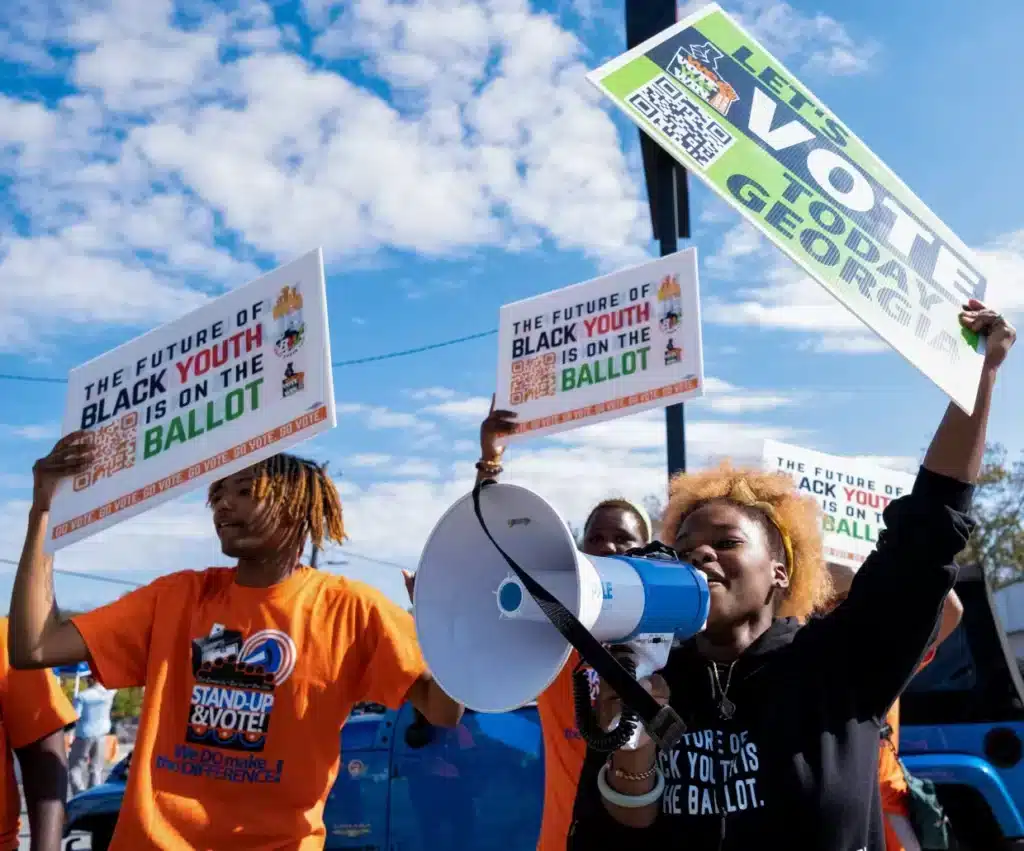When Lauren Nicks, a senior at Spelman College in Atlanta, cast her vote in last month’s midterms, she did so in her home state of New York.
Nicks, a 21-year-old international studies major at the historically Black college, had been told months earlier by fellow students about a law that does not allow students from private colleges and universities in the state to use their school ID as identification to vote — a rule she believed would prevent her from casting a ballot in Georgia.
As a result, she wasn’t able to vote for her preferred candidate, Democratic Sen. Raphael Warnock, in November, or in next week’s runoff election either.
“You can’t use that [Spelman] ID,” she said in a recent interview. “I just thought I wasn’t eligible.”
…
There are about 157,000 registered Georgia voters who don’t have an ID number on file with the secretary of state’s office, according to VoteRiders, a nonpartisan, nonprofit organization that advocates for voters who live in states with strict voter ID laws. The Office of the Georgia Secretary of State confirmed the number. There are at least 10,000 students enrolled at private HBCUs in Georgia.
…
An attempt to educate student voters
To prepare students who may have otherwise unexpectedly encountered the rule at a polling place, groups like Vote Riders put boots on the ground in the months ahead of the general election. The group has remained active in the weeks since, working to make sure that students, particularly at private HBCUs, who are already registered voters know what documents they must bring if they vote in person in Tuesday’s Senate runoff, and to remind them they can ask for a provisional ballot if obstacles arise.
“You have a lot of students who came from cities like Philadelphia, or New York and they never needed a driver’s license or had a state ID in their state,” said Sylvester Johnson, an Atlanta-area organizer with the group. He noted that the only form of photo ID some he’d talked with on various Atlanta campuses currently had was their student ID from the private HBCU they were enrolled in.
“These are the kind of students who are affected,” he said.
Johnson and his team of volunteers have been combing the seven private HBCU campuses across the state in recent weeks reminding students what they must bring when they cast their ballot in person.
One such voter, Aylon Gipson, said he, too, was organizing his friends and classmates.
“I got my driver’s license when I was 16, but there’s so many people I run into that don’t have one. A lot of our students don’t drive, don’t have a passport, it’s a problem,” said Gipson, a 20-year-old junior at Morehouse College in Atlanta who is originally from Montgomery, Ala.
“I’ve seen it firsthand. You hear people saying they want to vote, want to be involved, but they don’t know if they are even allowed to vote,” he added. “It’s discourages them from showing up.”

